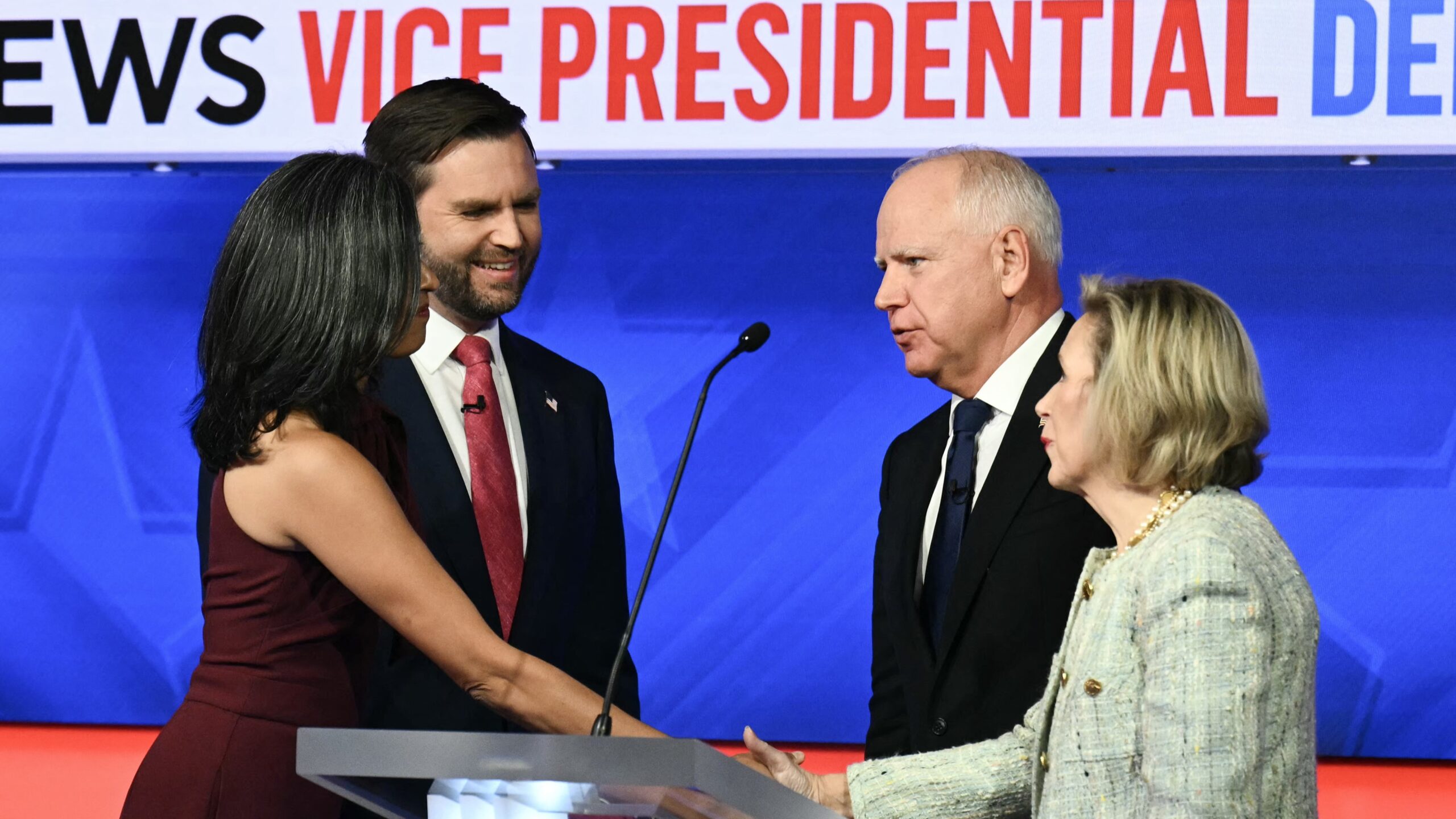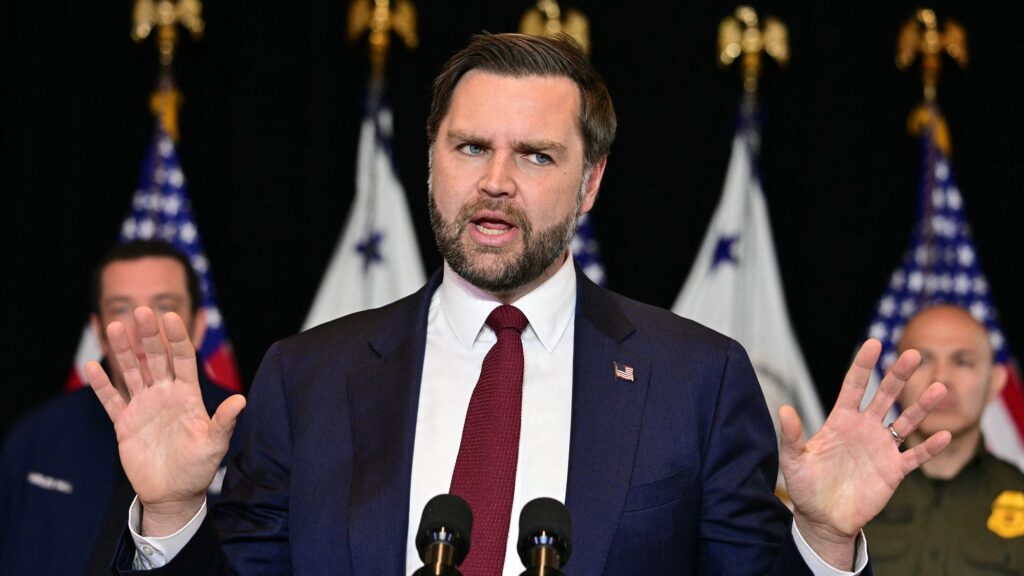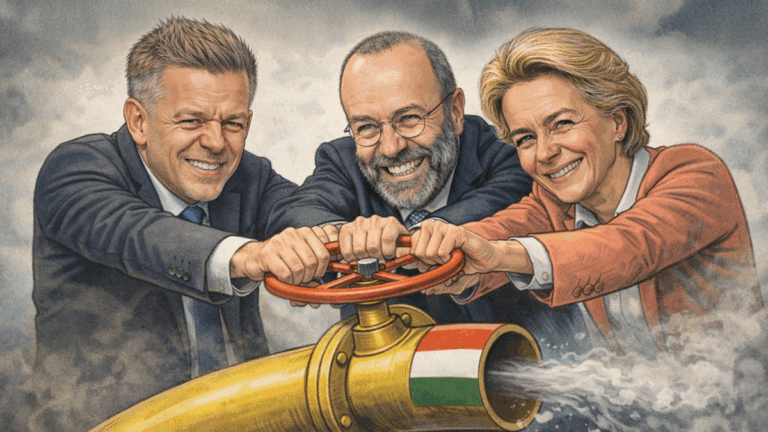In a debate marked by civility, American vice presidency hopefuls JD Vance (Republican) and Tim Walz (Democrat) clashed on key issues. The debate, which took place in New York City, was notable for its topical focus and polite tone, a departure from the more confrontational presidential debate between Donald Trump and Kamala Harris.
The Wall Street Journal noted that, without Trump as a direct participant, the Republican-Democrat debate’s dynamic had shifted. Vance’s performance appeared aimed at swing voters, advocating for stable leadership and healthy families. A polished speaker, he articulated efficiently a vision of a second Trump administration characterized by peace and prosperity, while Walz struggled to defend Vice President Harris’s record.
Topical and Polite, But with Some Key Clashes
Both candidates largely refrained from personal attacks, with their sharpest criticisms reserved for their opponents’ presidential running mates.
As the BBC reported, Vance used his speaking skills to prosecute the case against the Biden-Harris administration, repeatedly emphasizing Trump’s record of lower inflation and economic prosperity during his term.
Walz, on the other hand, pressed Vance to recognise again that Trump did lose the previous presidential election, while Vance preferred to focus on the future rather than to dwell on the past.
Contrasting Styles and Performances
According to the Financial Times, Vance entered the debate with low favourability ratings, especially among women voters. However, his smooth and polished performance might have helped to soften his image. As the Wall Street Journal pointed out, Vance shifted away from his usual ‘attack-dog role’ to present himself as a more moderate and composed alternative to Trump’s often erratic style, positioning himself as a ‘swing-voter-friendly’ candidate.
In contrast, Walz, who is known for his small-town, folksy demeanour, struggled to maintain his footing, especially early in the debate. His discomfort on foreign policy issues was evident, and he occasionally stumbled when trying to defend his own biography. Radio-Canada does observe that Walz grew less hesitant as the debate progressed, particularly when discussing domestic issues like abortion and immigration; but his uneven performance may have limited his ability to sway undecided voters.
Major Issues Mentioned
Immigration became a focal point during the debate, with Vance attacking the Harris administration’s handling of border security, blaming it for rising housing costs and falling wages. Walz countered by accusing Trump of blocking bipartisan immigration reform, suggesting that the Republican Party was more interested in using immigration as a political weapon than in finding real solutions.
On abortion, Vance acknowledged that Republicans need to rebuild trust with voters, emphasizing his desire to support families and make it easier for women to afford having children. Meanwhile, Walz made a point to frame the Democratic position as ‘pro-women’ and ‘pro-choice’, rejecting Vance’s suggestion that individual states should decide on abortion laws.
As was pointed out by CNN, Vance repeatedly criticized the Biden-Harris administration’s economic record, pointing to Trump’s presidency as a time of stability and lower inflation. Meanwhile, Walz asserted Trump’s responsibility in destabilizing the international situation.
Despite these differences, the two candidates found moments of agreement. They both acknowledged the importance of addressing gun violence, for instance, and of tackling climate change (as quoted by Euronews, ‘Vance contended that the best way to fight climate change was to move more manufacturing to the United States’). As the Wall Street Journal noted, this ‘collegiality’ contrasted with the overall divisiveness of the presidential campaign, with Vance and Walz finding common ground on several key issues while disagreeing on how best to address them.
Impact on Voters and Broader Implications
Vice-presidential debates rarely determine the outcome of an election, but this year’s race has raised the stakes, on top of the mostly emotionally-driven presidential debate making voters yearn for a more poised exchange like the one we saw between both VP hopefuls. As the BBC pointed out, with no further debates currently scheduled, this might be the last chance for the American people to hear directly from the candidates together before election day on 5 November. Both Vance and Walz faced the challenge of filling in the gaps left by their more polarizing running mates—Trump, seen by some as erratic, and Harris, who remains relatively unknown despite her role as vice president.
Vance’s calm and effective performance, as noted by the Wall Street Journal, could bolster Republican confidence in his future within the party. His ability to advocate for Trump’s policies in a composed and persuasive manner suggests that he could be a strong contender for future leadership roles within the conservative movement.
For Walz, the debate was a chance to address his gripes with the previous Trump administration. However, as the Financial Times observed, his struggles to defend not only Harris’s record, but also his own past, may have limited his ability to connect with undecided voters.
As noted by Radio-Canada, although the respectful tone of the debate offered voters a refreshing contrast to the more hostile exchanges in the presidential race, it remains to be seen how that will translate into votes.
Related articles:







